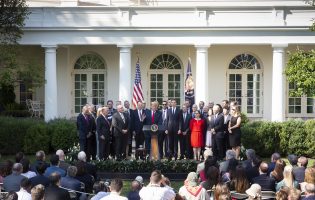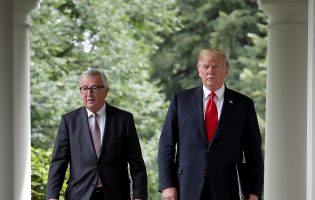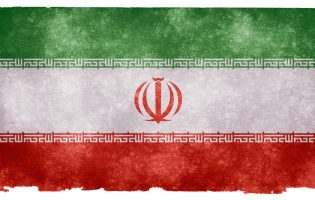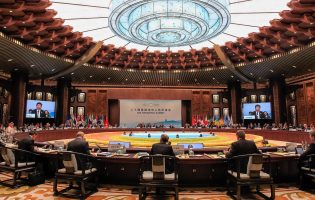
After NAFTA: What the USMCA Means for Germany and Europe
October 1 saw the birth of the “United States-Mexico-Canada Agreement” that will replace NAFTA, the 25-year old accord that governed trade among the three North American countries. While the EU …

AGI Senior Fellow Peter Rashish Joins T20 for Presentation of Communiqué at Summit in Argentina
Washington, DC, September 25, 2018 – AGI Senior Fellow and Director of the Geoeconomics Program Peter Rashish joined other members of the Think 20 to present its Communiqué to President …

Google 2.0 in China? A Look at the Global Competition for Tech Dominance
Hundreds of Google employees recently signed a letter over ethical concerns about the company’s transparency on a secret project intended for the Chinese market. Known internally as Dragonfly, the project …

The Lehman Lesson
Most people remember where they were when JFK was shot, or the Berlin Wall fell, or the Twin Towers were struck. Wars, assassinations, or natural catastrophes remain unforgettable among those …

The Role of Fertility and Family Leave Policies in Shaping Fertility and Female Labor Supply: A Comparative Perspective
Raising fertility and female employment levels constitute primary concerns for policymakers in the developed world. Childcare subsidies, paid and unpaid parental leave, and direct per-child subsidies, often referred to as …
Recent Authors
AGI provides knowledge, insights, and networks as tools to solve the challenges ahead.
Support Our WorkU.S., EU Negotiators Meet in Bid to Ease Trans-Atlantic Trade Tensions
“While this refound enthusiasm for strengthening trans-Atlantic economic ties holds promise, both the United States and the European Union have learned from experience that progress is not guaranteed,” Senior Fellow …

Making the Atlantic Great (Again)? Prospects for New U.S.-EU Trade Negotiations
Issue Brief 58 The idea of a free trade agreement between the United States and the European Union can seem at once inevitable and impossible. Over the last twenty-five years, …

The West’s Greatest Challenge Lies in Washington, Not Moscow
It has been a month now since Donald Trump’s indulgence in Helsinki of Vladimir Putin’s “extremely strong” denial of Russian involvement in hacking the 2016 U.S. election. With this move, …

EU Blocking Statute and U.S. Sanctions: Difficult Choices for German Companies
The first batch of re-imposed U.S. sanctions on Iran is in effect. As a countermeasure, the EU has updated its already existing Blocking Statute with measures that entered into force …

The Political Economy of Trade Balances: Too Simple to Understand!
The issue of bilateral trade balances between the United States (U.S.) and its trading partners (not enemies!) has dominated the discussion of transatlantic trade relations in the past 18 months. …

Beijing Knows What It Is Doing…but Do We Know What We Are Doing?
Beijing’s tariff retaliation on Wednesday added more fuel to an already flaring trade war that threatens to put the global economy in jeopardy. Despite breathing a sigh of tentative relief …



